Приложение
Как установить приложение на iOS
Смотрите видео ниже, чтобы узнать, как установить наш сайт в качестве веб-приложения на домашнем экране.
Примечание: This feature may not be available in some browsers.
Вы используете устаревший браузер. Этот и другие сайты могут отображаться в нём некорректно.
Вам необходимо обновить браузер или попробовать использовать другой.
Вам необходимо обновить браузер или попробовать использовать другой.
Books [David Poole, Alan Mackworth] Artificial Intelligence: Foundations of Computational Agents 3 edition
- Пользователь tttx
- Дата Books
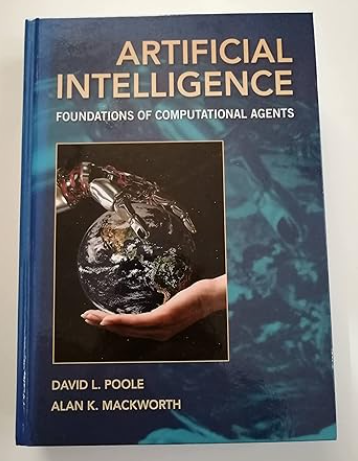
Recent decades have witnessed the emergence of artificial intelligence as a serious science and engineering discipline. Artificial Intelligence: Foundations of Computational Agents is a textbook aimed at junior to senior undergraduate students and first-year graduate students. It presents artificial intelligence (AI) using a coherent framework to study the design of intelligent computational agents. By showing how basic approaches fit into a multidimensional design space, readers can learn the fundamentals without losing sight of the bigger picture. The book balances theory and experiment, showing how to link them intimately...
Books [Hadelin de Ponteves] AI Crash Course: A Fun and Hands-on Introduction to Machine Learning
- Пользователь tttx
- Дата Books
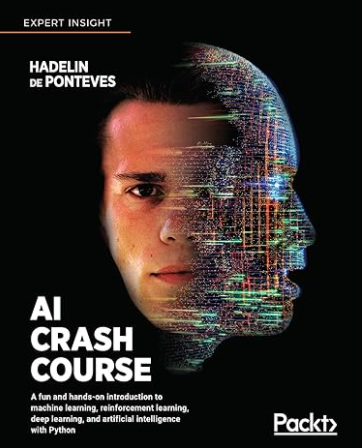
Unlock the power of artificial intelligence with top Udemy AI instructor Hadelin de Ponteves.
Key Features
- Learn from friendly, plain English explanations and practical activities
- Put ideas into action with 5 hands-on projects that show step-by-step how to build intelligent software
- Use AI to win classic video games and construct a virtual self-driving car
Book Description
Welcome to the Robot World ... and start building intelligent software now!Through his best-selling video courses, Hadelin de Ponteves has taught hundreds of thousands of people to write AI software. Now, for the first time, his...
Books [Xuefeng Zhou, Zhihao Xu, Shuai Li, Hongmin Wu, Taobo Cheng, Xiaojing Lv] AI based Robot Safe Learning and Control
- Пользователь tttx
- Дата Books
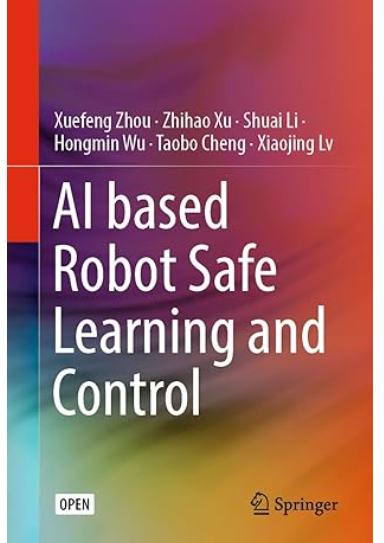
This open access book mainly focuses on the safe control of robot manipulators. The control schemes are mainly developed based on dynamic neural network, which is an important theoretical branch of deep reinforcement learning. In order to enhance the safety performance of robot systems, the control strategies include adaptive tracking control for robots with model uncertainties, compliance control in uncertain environments, obstacle avoidance in dynamic workspace. The idea for this book on solving safe control of robot arms was conceived during the industrial applications and the research discussion in the laboratory. Most of the...
Books [Leslie Michael Orchard] Hacking Rss And Atom
- Пользователь tttx
- Дата Books
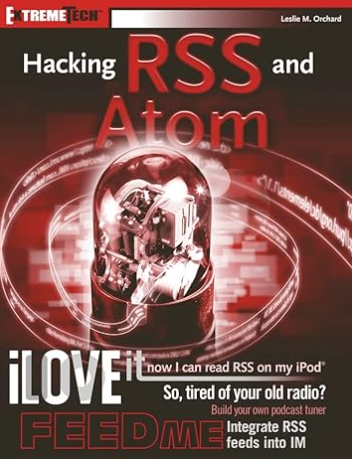
Now you can satisfy your appetite for information
This book is not about the minutia of RSS and Atom programming. It's about doing cool stuff with syndication feeds-making the technology give you exactly what you want the way you want. It's about building a feed aggregator and routing feeds to your e-mail or iPod, producing and hosting feeds, filtering, sifting, and blending them, and much more. Tan-talizing loose ends beg you to create more hacks the author hasn't thought up yet. Because if you can't have fun with the technology, what's the point?
A sampler platter of things you'll learn to do
- Build a simple feed aggregator...
Books [Elliotte Rusty Harold] XML 1.1 Bible 3rd Edition
- Пользователь tttx
- Дата Books
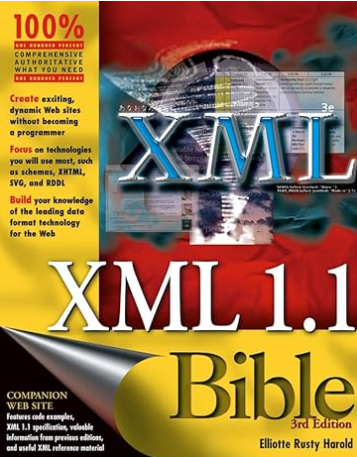
- Updated and better than ever, this more focused revision provides comprehensive coverage of XML to anyone with a basic understanding of HTML and Web servers
- Featuring all-new examples, this book contains everything readers need to know to incorporate XML in their Web site plans, designs, and implementations
- Continues expert Elliotte Rusty Harold's well-known track record for delivering the best XML guidance available
- Includes coverage of the most recent XML 1.1 specification and the latest trends in XML Web publishing
- Companion Web site includes additional examples and reference material found in previous editions...
Books [Jon Barwise, John Etchemendy] Language, Proof and Logic
- Пользователь tttx
- Дата Books
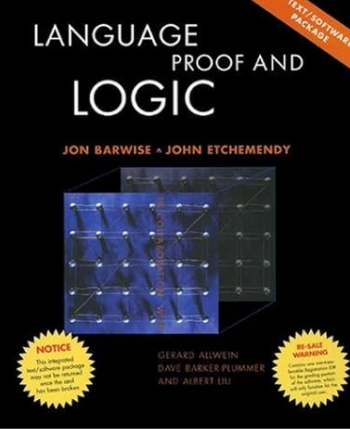
This textbook/software package covers first-order language in a method appropriate for first and second courses in logic. The unique on-line grading services instantly grades solutions to hundred of computer exercises. It is specially devised to be used by philosophy instructors in a way that is useful to undergraduates of philosophy, computer science, mathematics, and linguistics.
The book is a completely rewritten and much improved version of The Language of First-order Logic. Introductory material is presented in a more systematic and accessible fashion. Advanced chapters include proofs of soundness and completeness for...
Books [Simon Peyton Jones] The Implementation of Functional Programming Languages
- Пользователь tttx
- Дата Books
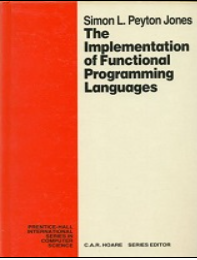
This book is about implementations, not languages, it will make no attempt to extol the virtues of functional languages or the functional programming style. Instead this book will assume that the reader is familiar with functional programming; those without this familiarity may find it heavy going.
The first part describes how to translate a high-level functional language into an intermediate language, called the lambda calculus, including detailed coverage of pattern-matching and type-checking.
The second part begins with a simple implementation of the lambda calculus, based on graph reduction, and then develops a number of...
Books [Simon Peyton Jones, David Lester] Implementing Functional Languages: A Tutorial
- Пользователь tttx
- Дата Books
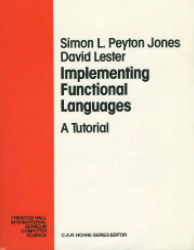
This book provides a practical approach to understanding implementations of non-strict functional languages using lazy graph reduction. It is intended to be a source of practical laboratory work material and to help students to develop, modify and experiment with their own implementations.
The emphasis lies on the building of working prototypes of several functional language implementations and in each case the approach is to give a complete working prototype of a particular implementation, then lead the reader through a sequence of improvements to expand its scope. The prototypes are expressed in the functional language Miranda and...
Books [Monti Ben-Ari] Understanding Programming Languages
- Пользователь tttx
- Дата Books
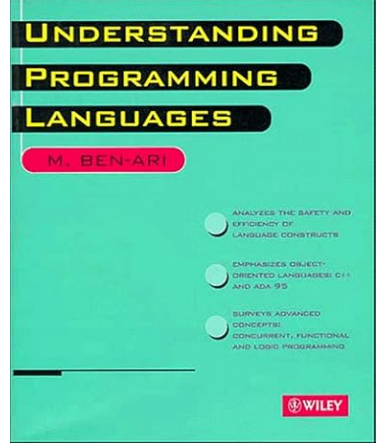
This book compares constructs from C with constructs from Ada in terms of levels of abstractions. Studying these languages provides a firm foundation for an extensive examination of object-oriented language support in C++ and Ada 95. It explains what alternatives are available to the language designer, how language constructs should be used in terms of safety and readability, how language constructs are implemented and which ones can be efficiently compiled and the role of language in expressing and enforcing abstractions. The final chapters introduce functional (ML) and logic (Prolog) programming languages to demonstrate that...
Books [Dick Grune, Ceriel J.H. Jacobs] Parsing Techniques: A Practical Guide
- Пользователь tttx
- Дата Books
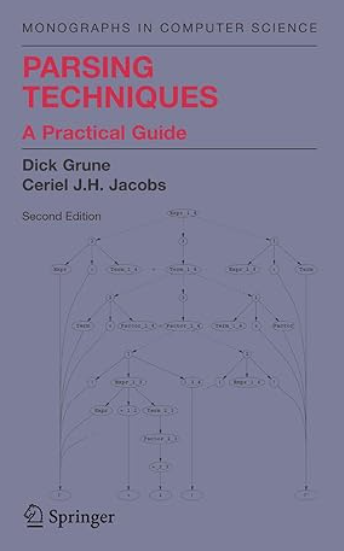
Parsing, also referred to as syntax analysis, has been and continues to be an essential part of computer science and linguistics. Today, parsing techniques are also implemented in a number of other disciplines, including but not limited to, document preparation and conversion, typesetting chemical formulae, and chromosome recognition.
This second edition presents new developments and discoveries that have been made in the field. Parsing techniques have grown considerably in importance, both in computational linguistics where such parsers are the only option, and computer science, where advanced compilers often use general CF...
Books [David Gries] Monographs in Computer Science
- Пользователь tttx
- Дата Books
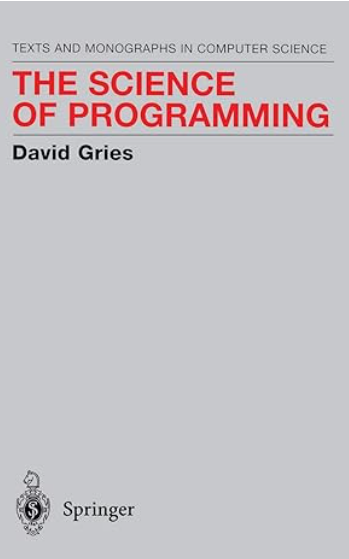
This is the very first book to discuss the theory and principles of computer programming on the basis of the idea that a proof of correctness and a program should be developed hand in hand. It is built around the method first proposed by Dijkstra in his monograph The Discipline of Programming (1976), involving a "calculus for the derivation of programs." Directing his materials to the computer programmer with at least one year of experience, Gries presents explicit principles behind program development, and then leads the reader through example programs using those principles. Propositions and predicate calculus are presented as a...
Books [Pierre-Louis Curien] Category Theory: A Programming Language Oriented Introduction
- Пользователь tttx
- Дата Books
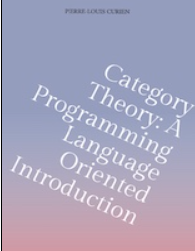
This book explains the following topics: Categories, functors, natural transformations, String diagrams, Kan extensions, Algebras, coalgebras, bialgebras, Lambda-calculus and categories.
INFORMATION PAGE:
DOWNLOAD:
Books [Douglas Thain] Introduction to Compilers and Language Design
- Пользователь tttx
- Дата Books
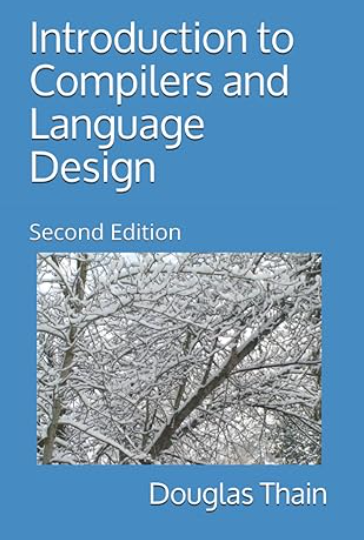
A compiler translates a program written in a high level language into a program written in a lower level language. For students of computer science, building a compiler from scratch is a rite of passage: a challenging and fun project that offers insight into many different aspects of computer science, some deeply theoretical, and others highly practical. This book offers a one semester introduction into compiler construction, enabling the reader to build a simple compiler that accepts a C-like language and translates it into working X86 or ARM assembly language. It is most suitable for undergraduate students who have some experience...
Books [Shriram Krishnamurthi] Programming and Programming Languages
- Пользователь tttx
- Дата Books
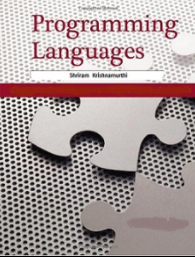
Many people would regard this as being two books in one, integrated. One book is an introduction to programming, teaching you basic concepts of organizing data and the programs that operate over them, ending in the investigation of universally useful algorithms. The other book is an introduction to programming languages: a study, from one level up, of the media by which we structure these data and programs.
About the Authors
- Shriram Krishnamurthi is a computer scientist, currently a professor of computer science at Brown University and a member of the core development group for the Racket programming languages...
Books [Aarne Ranta] Implementing Programming Languages: An Introduction to Compilers and Interpreters
- Пользователь tttx
- Дата Books
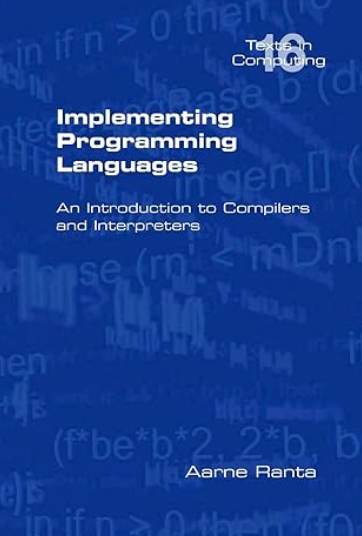
Implementing a programming language means bridging the gap from the programmer's high-level thinking to the machine's zeros and ones. If this is done in an efficient and reliable way, programmers can concentrate on the actual problems they have to solve, rather than on the details of machines. But understanding the whole chain from languages to machines is still an essential part of the training of any serious programmer. It will result in a more competent programmer, who will moreover be able to develop new languages. A new language is often the best way to solve a problem, and less difficult than it may sound. This book follows a...
Books [Raphael A. Finkel] Advanced Programming Language Design
- Пользователь tttx
- Дата Books
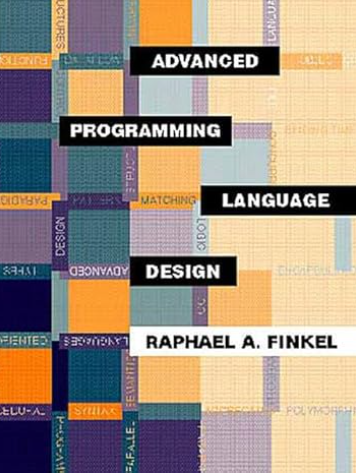
This accessible new volume examines and evaluates the principles of programming languages from both their common and language-specific elements. Each chapter is devoted to a particular programming language issue. These issues are illustrated with an example from one of the many programming languages used today.
INFORMATION PAGE:
DOWNLOAD:
Books [Andreas Hohmann] Programming Languages at a Glance
- Пользователь tttx
- Дата Books
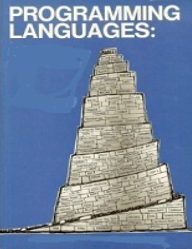
This book tries to explain a number of programming languages, covering a wide range from currently popular ones such as Java, Perl, Python, and C# to less known languages such as ML, Haskell.
There is one key requirement: the language has to be available for free (or otherwise I could not afford writing this book). We don’t expect a full blown IDE; a good set of command line tools is just as fine. Fortunately, this requirement is fulfilled by most languages these days, since they don’t stand a chance otherwise. In many cases, even a free IDE is available (e.g., Eclipse for Java or Smalltalk/X)
INFORMATION PAGE:...
Books [Shriram Krishnamurthi] Programming Languages: Application and Interpretation
- Пользователь tttx
- Дата Books
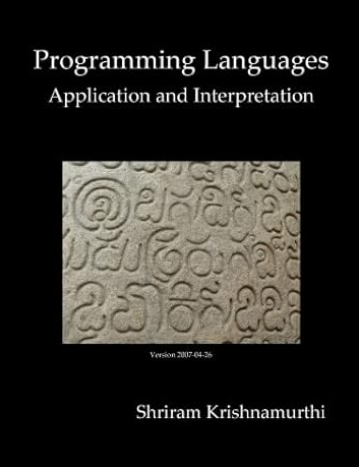
This book unites two approaches to teaching programming languages, one based on a survey of languages and the other on writing definitional interpreters. It has been used as a textbook at over fifty institutions worldwide, and is referenced by non-academic users on the Web. You can learn about the differences between versions, and get the accompanying software, from the book's Web site (www.plai.org). You can get the same PDF version of the book, free of cost, from its Web site. This is to give you a choice: if you want to pay the author, get it from here; if you don't (or can't afford to), get it for free from there. Note...
Books [Vassili Kaplan] Implementing a Custom Language Succinctly
- Пользователь tttx
- Дата Books
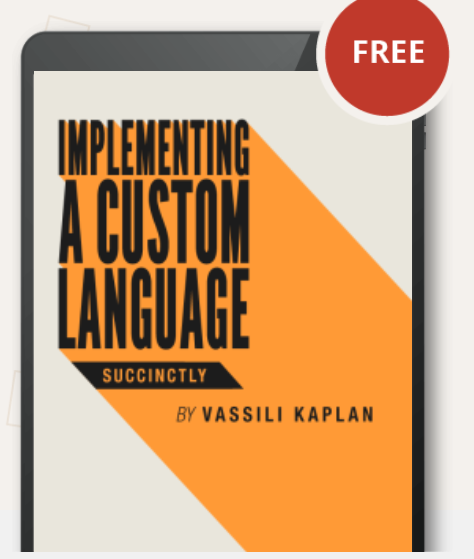
Custom languages provide many benefits, but many people fear the complexity that comes with trying to deploy them. Author Vassili Kaplan sweeps away the obstacles and shows how custom languages are a tool within reach of any developer. With Implementing a Custom Language Succinctly, readers will discover just how much they can accomplish with the skills they already have.
INFORMATION PAGE:
DOWNLOAD:
Books [Robert Sebesta] Concepts of Programming Languages 10th Edition
- Пользователь tttx
- Дата Books
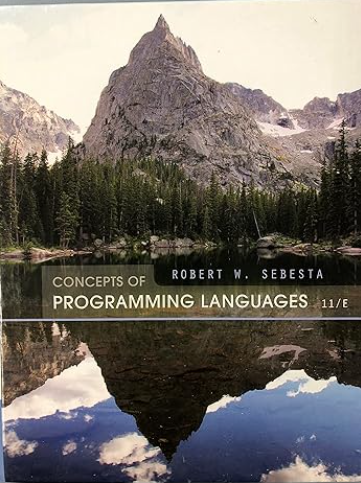
For courses in computer programming.
Evaluating the Fundamentals of Computer Programming Languages
Concepts of Computer Programming Languages introduces students to the fundamental concepts of computer programming languages and provides them with the tools necessary to evaluate contemporary and future languages. An in-depth discussion of programming language structures, such as syntax and lexical and syntactic analysis, also prepares readers to study compiler design.
The Eleventh Edition maintains an up-to-date discussion on the topic with the removal of outdated languages such as Ada and Fortran. The addition of relevant new...
Books [Mike Grant, Zachary Palmer, Scott Smith] Principles of Programming Languages
- Пользователь tttx
- Дата Books
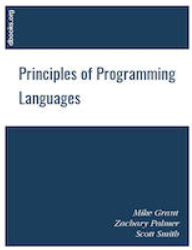
Kenneth Louden and Kenneth Lambert's new edition of PROGRAMMING LANGUAGES: PRINCIPLES AND PRACTICE, 3E gives advanced undergraduate students an overview of programming languages through general principles combined with details about many modern languages. Major languages used in this edition include C, C++, Smalltalk, Java, Ada, ML, Haskell, Scheme, and Prolog; many other languages are discussed more briefly. The text also contains extensive coverage of implementation issues, the theoretical foundations of programming languages, and a large number of exercises, making it the perfect bridge to compiler courses and to the theoretical...
Books [Apple Developers] The Swift Programming Language
- Пользователь tttx
- Дата Books
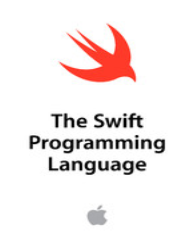
Swift is a new programming language for creating iOS and OS X apps. Swift builds on the best of C and Objective-C, without the constraints of C compatibility. Swift adopts safe programming patterns and adds modern features to make programming easier, more flexible, and more fun. Swift's clean slate, backed by the mature and much-loved Cocoa and Cocoa Touch frameworks, is an opportunity to reimagine how software development works.
This book provides:
- A tour of the language.
- A detailed guide delving into each language feature.
- A formal reference for the language.
Скрипты и программы 360Proxy Stable and cheap resident agent!
- Пользователь Quinn
- Дата Скрипты и программы
More than 80 million real residential IP addresses, covering more than 190 locations around the world.
The enterprise plan can reach only $0.70 per GB.
Support the traffic payment or ip payment, a variety of ways, more personalized!
Support for HTTP, HTTPS, and SOCKS5
360 Proxy can integrate products into your scraping infrastructure. There are also multilingual support and off-the-shelf program demo examples to quickly start your data capture business.
Whether you want to use it for e-commerce, market research, advertising verification, social networking is a good choice!
Click the https://www.360proxy.com/ official website to experience!
The enterprise plan can reach only $0.70 per GB.
Support the traffic payment or ip payment, a variety of ways, more personalized!

Support for HTTP, HTTPS, and SOCKS5
360 Proxy can integrate products into your scraping infrastructure. There are also multilingual support and off-the-shelf program demo examples to quickly start your data capture business.
Whether you want to use it for e-commerce, market research, advertising verification, social networking is a good choice!
Click the https://www.360proxy.com/ official website to experience!
Books [Steven Holzner] Sams Teach Yourself XML in 21 Days
- Пользователь tttx
- Дата Books
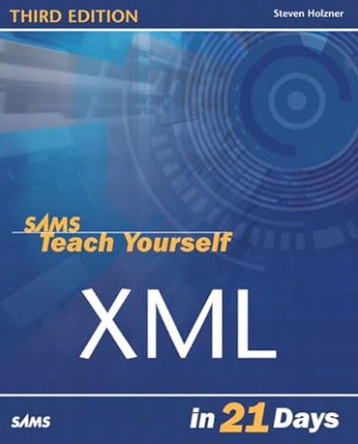
Sams Teach Yourself XML in 21 Days, written by expert author Steve Holzner, offers hundreds of real-world examples demonstrating the uses of XML and the newest tools developers need to make the most of it. In Week One, he starts from basic syntax, and discusses XML document structure, document types, and the benefits of XML Schema. Week Two covers formatting using either CSS or the Extensible Sytlesheet Language, and working with XHTML and other tools for presenting XML data on the Web, or in multimedia applications. The final chapter of week two discusses XForms, the newest way to process forms in XML applications. Week Three...
Books [O'Reilly] The XML CD Bookshelf, Version 1.0 - 7 Bestselling Books
- Пользователь tttx
- Дата Books
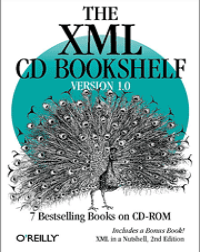
O'Reilly's "XML CD Bookshelf" provides convenient online access to seven indispensable XML books - over 3,000 pages of useful O'Reilly reference and tutorials. It contains:
- XML in a Nutshell, Second Edition
- XSLT
- XML Schema
- SAX2
- Java & XML, Second Edition
- Java and XSLT
- Perl & XML
DOWNLOAD:
Зеркала проекта
Зеркала PirateHUB на случай блокировки основного адреса. Эти ссылки безопасны для использования. Также всегда актуальная ссылка доступна на этом сайте.
Рабочее s1 piratehubРабочее s2 piratehub
Рабочее s3 piratehub
Рабочее s4 piratehub
Недоступно в РФ openssource
Пользователи онлайн
- Yurik_1
- bvi
- Maxram
- ArcHiTechTor
- Alexizquierrrdo
- Joker97
- larsan78
- Илья_89
- nsrwntjo
- Ника777
- uspeh
- Елена Ж
- nvolkovjob
- Юлия Димаки
- Laurinda
- AnataLev
- anakos
- BlekDshek
- Solo.ua
- В366
- Пуки
- Sadalmelik
- ooorumarket
- Sandra20
- Lex_rich
- NastiyKsks989ks
- ganef
- Ramzes
- Chizhik13
- art_universal_mind
- Evgeniya N
- alex555555
- KsushKush
- Валера67
- Serg5555
- Aspirant
- lalusik2011
- Tatiana15
- dedsad
- A1exShin
- Oleg10
- Oleg1967
- Shukhrat5377
- ivasek80
- Albash
- oksill69
- scorpion127
- Dira
- astrastar
- style11
Всего: 1,441 (пользователей: 72, гостей: 1,369)
О нас
PirateHUB (ex. openssource) - это сообщество, объединяющее единомышленников, стремящихся к повышению своих профессиональных навыков и освоению новых областей. На нашем сайте вы можете бесплатно скачать самые актуальные и популярные курсы, книги, тренинги и вебинары, а также материалы по различным направлениям.
Пользователи онлайн
- Yurik_1
- bvi
- Maxram
- ArcHiTechTor
- Alexizquierrrdo
- Joker97
- larsan78
- Илья_89
- nsrwntjo
- Ника777
- uspeh
- Елена Ж
- nvolkovjob
- Юлия Димаки
- Laurinda
- AnataLev
- anakos
- BlekDshek
- Solo.ua
- В366
- Пуки
- Sadalmelik
- ooorumarket
- Sandra20
- Lex_rich
- NastiyKsks989ks
- ganef
- Ramzes
- Chizhik13
- art_universal_mind
- Evgeniya N
- alex555555
- KsushKush
- Валера67
- Serg5555
- Aspirant
- lalusik2011
- Tatiana15
- dedsad
- A1exShin
- Oleg10
- Oleg1967
- Shukhrat5377
- ivasek80
- Albash
- oksill69
- scorpion127
- Dira
- astrastar
- style11
Всего: 1,441 (пользователей: 72, гостей: 1,369)
